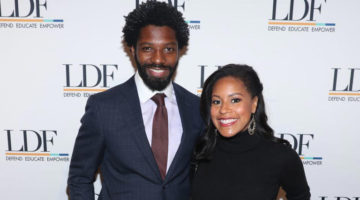WASHINGTON (AP) — As musicians and a choir of students, alumni and others from the larger community sang, hundreds of people claimed 1,500 seats inside Howard University’s Crampton Auditorium.
For decades, students have walked through the archway of the rustic brick sanctuary near the university’s front gates to sing, pray and make sense of their faith, drawn in by a who’s who of influential civic leaders, clergy and scholars.
More recent speakers have included prominent lawyer and civil rights activist Vernon Jordan, Princeton University professor Cornel West and Rep. Elijah E. Cummings, D-Md.
Since 2002, nondenominational services have taken place in the 1,500-seat auditorium because attendance outgrew the nearly 120-year-old Andrew Rankin Memorial Chapel, a national historic landmark.
Although the weekly 11 a.m. service is no longer held in the chapel, spiritual flames first kindled in the old sanctuary have been kept going by a new generation of speakers following in the tradition of revered ministers Howard Thurman, Benjamin E. Mays, Gardner Taylor and the Rev. Martin Luther King Jr.
“There is such a sweet, sweet spirit in this chapel,” said Johnnetta B. Cole, director of the Smithsonian Institution National Museum of African Art, before expressing appreciation to the chapel’s dean, Bernard Richardson, for inviting her to speak.
The fourth dean of the chapel and a professor in the divinity school, Richardson is the chief point person on campus for religious affairs for students, staff, faculty and the larger community.
Sunday’s service ended a new annual football classic weekend, AT&T Nation’s Football Classic. The four-day More Than a Game event stoked the athletic rivalry between Howard and Morehouse College that started in 1923 and was renewed in 2011 after a 14-year hiatus. In addition to the football game, the event featured symposiums and a debate.
In her sermon, Cole called for worshipers to reinvest in historically black colleges and universities such as Howard and Morehouse which served as incubators for developing legions of black educational, medical, political, civil and religious leaders. Before coming to Washington, Cole had a long and distinguished career in academia, including serving as president of Spelman College in Atlanta and Bennett College for Women in Greensboro, N.C.
It was no accident that the weekend began with a prayer and ended with a chapel service, Howard University President Sidney Ribeau said.
“What does that say about our people and how we find our strength?” Ribeau said.
When greeting the congregation, Spelman President Beverly Daniel Tatum said Howard holds a special place in her life because Richardson taught her in seminary and her parents were former students who married in the old chapel.
Later, after discussing two works of scholar/civil rights activist W.E.B. DuBois in his talk, Morehouse President Robert Franklin told the gathering, “For me, this weekend illustrates the soul and gifts of black folks, and the nation needs to see this.”
During the call to chapel each week, representatives from campus and community organizations share information about their activities and latest initiatives. Speakers are gently encouraged to heed a 60-second — sometimes 30-second — time limit but no one is criticized for speaking longer.
It is a time to applaud student achieveents, to learn about appeals to support issues such as voter education, disaster relief and the university’s alternative spring break projects across the nation and abroad. In attendance every Sunday are Ribeau and his wife, Dr. Paula Whetsel-Ribeau, who leads the chapel’s alternative spring break program.
“The same type of teachings (sic) that created Dr. King, Benjamin E. Mayes and Howard Thurman is still happening right here,” Richardson said. “To see the community, faculty and alumni really lift up these students, it’s amazing.”
Rankin Chapel is a service for more than those who gather on the campus. Every Sunday, the music, prayers and sermons are broadcast across the area on WHUR (96.3 FM) and for years, the dean has been known for his soul-stirring prayers.
In their essence, noted the Rev. Ernest Brooks III, associate campus minister at Morehouse, the services at Rankin echo those at historically black colleges across the country.
“We have made chapel service an intimate part of our campus atmosphere because it connects us to the broad community,” Brooks said. “The chapel is really the living room of the college. It is the place where you get grounded.”
As she sat in the service last Sunday, Kachi Ezeibe, a 19-year-old Howard chemistry major from Huntsville, Ala., expressed much the same thought.
“It’s a humbling experience to come here every Sunday, to hear a great word and to have a family away from home,” Ezeibe said.












No Comment